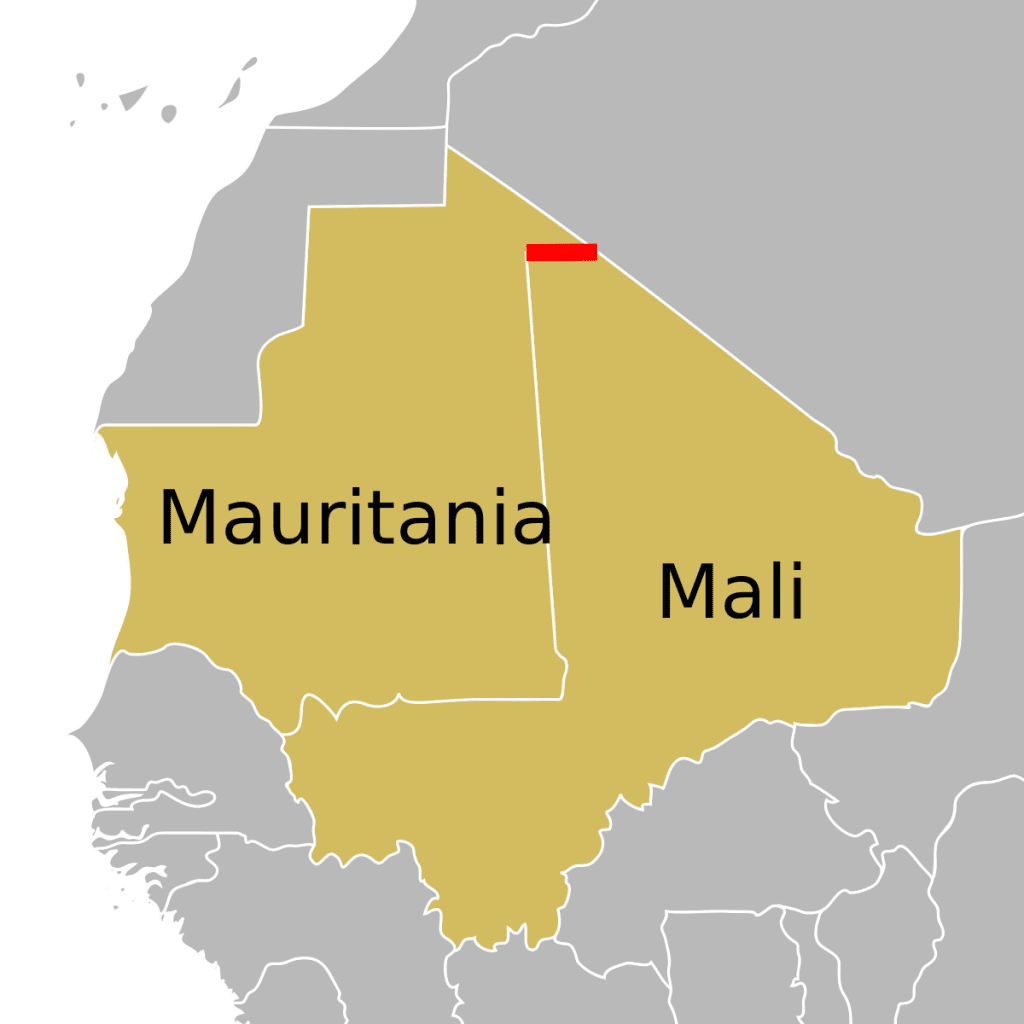Citizens of Mauritania have been killed or reported missing in recent months in a Malian area bordering Mauritanian territory.
Within its immediate vicinity, the ruling junta in Mali can count its friends on the fingers of one hand.
Will it lose Mauritania, another friendly country which, despite the embargo imposed by the Economic Community of West African States (Ecowas) against the Bamako putschists, has decided to keep its borders open to its neighbor and put its ports at its disposal to continue to trade with the rest of the world?
In a statement released Tuesday, March 8, the Mauritanian Ministry of Foreign Affairs announced that it had summoned the Malian ambassador to Nouakchott to express “strong protest against the recent recurrent criminal acts” thought to have been committed by the Malian army against Mauritanian citizens in Mali.
This protest by the Mauritanian authorities, who reminded its neighbour that their decision not to close their borders with Mali is dictated by “historical ties” that prevent them “from starving the brotherly people of Mali”, is justified, according to Nouakchott, by the fact that “the lives of our innocent fellow citizens and the security of their property will remain above all other considerations.”
Nouakchott’s statement comes hours after dozens of Mauritanians demonstrated outside the presidential palace to demand an end to what they said were abuses by the Malian army against their fellow citizens in Mali.
Several serious incidents in which Mauritanian nationals were killed or went missing in a Malian area bordering Mauritanian territory have occurred in recent months.
According to testimonies collected by the Mauritanian media or circulating on social media, some thirty Mauritanians disappeared recently in Malian territory near the Mauritanian border after encountering a Malian army patrol led by “white men” whom some sources, contacted by APA, suspect were elements of the famous Russian private mercenary company Wagner.
At least 15 of the missing were killed, according to Mohamed Mahmoud Ould Henenna, a member of parliament for the town of Bassiknou, near the border with Mali.
In January, the Malian army was accused of killing seven other Mauritanians in the same region.
At the time, after a few days of silence, the Mauritanian government was forced by public pressure to send a “high-level delegation” to Bamako, led by the country Foreign Minister and several top officials from the Defense and Security departments.
According to a statement issued Tuesday by the Mauritanian government, Nouakchott wants to “try to contain this hostile behavior towards our fellow citizens.”
But the same statement says that “despite the assurances given by Bamako, the outcome “has fallen short of expectations.”
Mali, which had declared at the time that there was no evidence to implicate the Malian army, had announced the opening of an investigation, the results of which have still not been made public,
Struck down in 2012 by yet another Tuareg rebellion, later supplanted by jihadist groups that occupied the entire north of the country for about ten months, Mali has since been facing a serious political and security crisis.
Despite a massive intervention by the French army starting in January 2013, which succeeded in liberating the northern cities from the grip of the jihadists, armed Islamists continue to roam the north and have even extended their reach to other regions, such as the center and south of the country.
LOS/fss/as/APA


